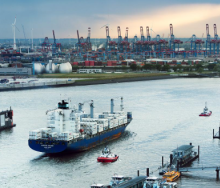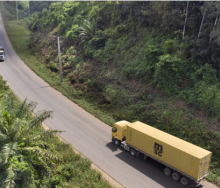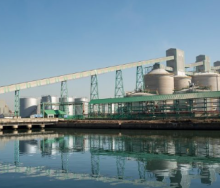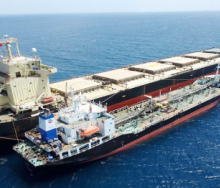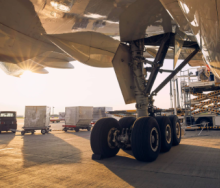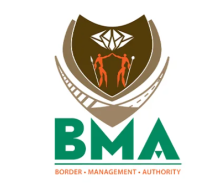Truck waiting time at the Durban Container Terminal (DCT) is creating a rift with harbour carriers, who claim Transnet is not transparent about what is really being done to resolve old issues such as regular equipment breakdowns and a flawed truck-slot booking system.
A haulier handling land-side container freight said at least two industry bodies, Positive Freight Solutions and Concerned Transporters, had been talking to port management for a number of years on the understanding that harbour carriers would negotiate in good faith and not approach the media.
“Unfortunately, that got us nowhere,” said the source who requested to remain anonymous.
He said all private-sector efforts to alleviate congestion at DCT have been exhausted and that harbour carriers have no option but to seek alternative recourse against a state-owned logistics utility that seems out of ideas about decongesting the port.
“One of my trucks waited 22 hours the other day. Transnet's booking system has been a failure from the start.”
He said private-sector stakeholders had been part of working groups for years, trying to play a progressive role in truck staging and advising Transnet at the outset that the current system wouldn’t work.
“All associations concerned advised the port that they weren’t ready for the system they implemented a few years ago, but they went ahead and implemented it anyway. They said the booking system would ease congestion and help traffic flow, but it hasn’t done that at all.”
The source, speaking out of concern for his business taking a knock because of delayed truck-turnaround times at DCT, said: “What Transnet has done over the last four to five years is force a lot of transporters out of business.”
Citing an erstwhile industry leader who used to take up cudgels for the same complaints pre-Covid, Durban Harbour Carriers Association chair Kevin Martin, the businessman said: “Nothing has changed since then. In fact, things are probably worse.”
He said from what is understood, the port is very busy with lines waiting up to 10 days at anchorage before offloading import boxes. Much of the waterside congestion currently at the port has to do with the Port of Cape Town being bypassed.
A customs liaison officer at freight forwarder Berry & Donaldson, Clifford Evans, confirmed as much.
“Lines are bypassing the port and heading straight to ports like Durban. Our port seems to be working well but that’s not the case. It’s a ‘false positive’ because we’re simply not being used as much as we should be.”
The harbour carrier Freight News spoke to said the port continues to underperform because of failing equipment, specifically straddle carriers.
“From what is known, they have about 97 straddles, but on any given day about 20% are in for repairs, which should give you about 65. And yet, for the most part, we’re seeing around 50 straddles available, or less.
“Transport Port Terminals (TPT) undertook some time ago to have at least 65 straddles in operation at all times from about April, May, but that hasn’t happened. Since then there has been no engagement from TPT about what’s going on.”
A source from the South African Association of Freight Forwarders (Saaff) said the port is too busy to handle the current number of boxes on the landside and that they can’t work the container stack fast enough.
“There is such a shortage of equipment that they cannot give the number of truck bookings required because they simply can’t handle them. As such, you end up with massive congestion on the quay, with as many as 500 trucks sometimes in staging.”
As for harbour carrier drivers, they sit for hours on end waiting to collect at DCT.
The Saaff source, whose name is being withheld, said trucks generally take six hours to haul containers from DCT when operations are running comparatively quickly.
Without any mobile ablution facilities or related amenities to accommodate drivers stuck in their trucks, one operator said he had to send a back-up with a driver to relieve another driver who had been stuck in his cab for 12 hours and was still some distance away from DCT’s gate.
A port official told Transnet Group CEO Michelle Phillips that a weekend break in fibre connectivity “heavily impacted landside operations".
“The terminal was running the export gate manually for over 25 hours.
“We are on the recovery since Sunday and we anticipate the situation to improve in the next 72 hours. The slots are taken immediately after being issued. Communication regarding slots is conveyed every three hours,” the official said.

